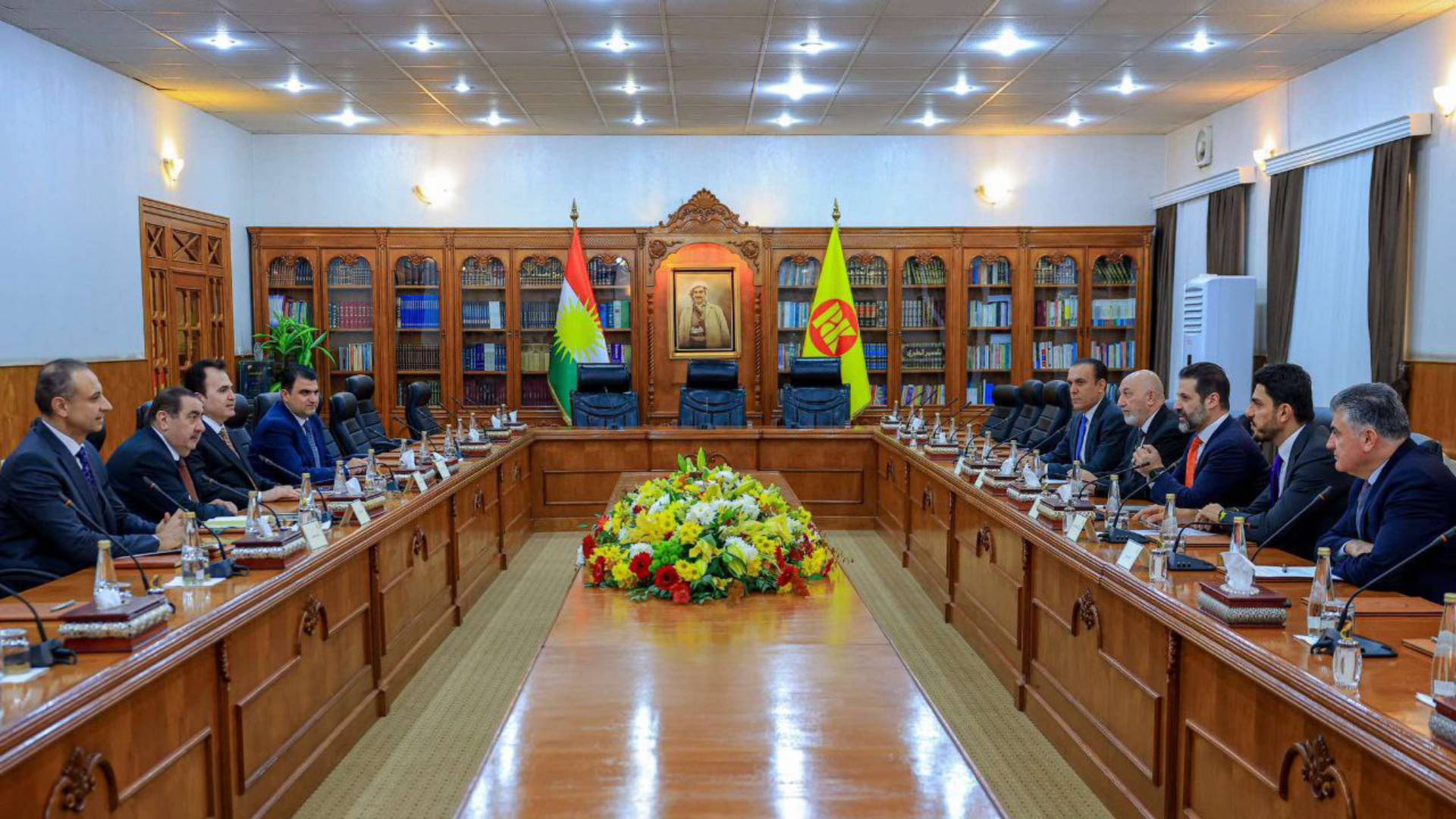Kurdistan Democratic Party (KDP) and the Patriotic Union of Kurdistan (PUK) resumed negotiations in Pirmam, Erbil province, on February 26, 2025, to discuss the formation of the next Kurdistan Regional Government (KRG). This high-level meeting follows months of political stalemate after the October 2024 elections. Both parties, as the leading forces in the Kurdistan Region, are seeking a power-sharing agreement amid differing political visions and governance priorities.
PUK and KDP Negotiations Continue
A delegation from the PUK, led by Deputy Prime Minister Qubad Talabani, met with KDP officials, including Hoshyar Zebari, in the latest round of discussions aimed at breaking the political impasse. The meeting builds on previous negotiations, including one held in Sulaymaniyah on February 22, 2025.
During a recent panel, Talabani emphasized the importance of forming a strong government, even if it requires delays. He urged both parties to focus on resolving governance challenges rather than engaging in superficial political pleasantries. The PUK has advocated for a government structure that addresses regional governance differences, particularly in areas such as Duhok and Garmian.
The ongoing discussions are crucial as the Kurdistan Region awaits the formation of a new cabinet. The delay has prompted calls for a government that effectively addresses public concerns and rights, which Talabani believes will contribute to the overall stability and development of the region.
Progress and Key Sticking Points
PUK spokesperson Saadi Pire confirmed that negotiations are progressing, with both parties working toward an inclusive and service-oriented government. “We aim to form an effective government that meets the needs of this stage and ensures all parties are in agreement as soon as possible,” he told PUKMEDIA.
A joint committee was previously formed to identify points of contention and propose solutions. After several meetings, this committee submitted a draft agreement to the senior leadership of both parties, which is now under review. The discussions continue as both sides navigate challenges in governance distribution, administrative decentralization, and power-sharing mechanisms.
A significant aspect of the PUK’s position is its demand for greater autonomy for local administrations, particularly at the governor and mayor levels. Talabani has stressed that empowering regional officials is essential for more effective governance.
Electoral Outcomes and Government Formation Prospects
The Kurdistan parliamentary elections, held in October 2024, resulted in the KDP emerging as the dominant party with 39 seats out of 100, securing 809,197 votes. The PUK followed with 23 seats, having garnered 408,141 votes. Given these results, both parties are expected to reach a coalition agreement to form the next government.
Despite seven rounds of negotiations, no final deal has been reached. Several opposition parties have already announced their intention to remain outside the government, increasing pressure on the KDP and PUK to finalize an agreement.
Observers anticipate that the two parties will eventually overcome their differences and form a government that reflects the region’s political balance. However, the ongoing delay underscores the complexities of Kurdish politics, where historical rivalries and governance priorities continue to shape coalition-building efforts.
With further meetings expected, both parties must navigate their differences to establish a government capable of addressing the region’s economic, political, and social challenges. The outcome of these negotiations will determine the Kurdistan Region’s political trajectory in the coming years.


